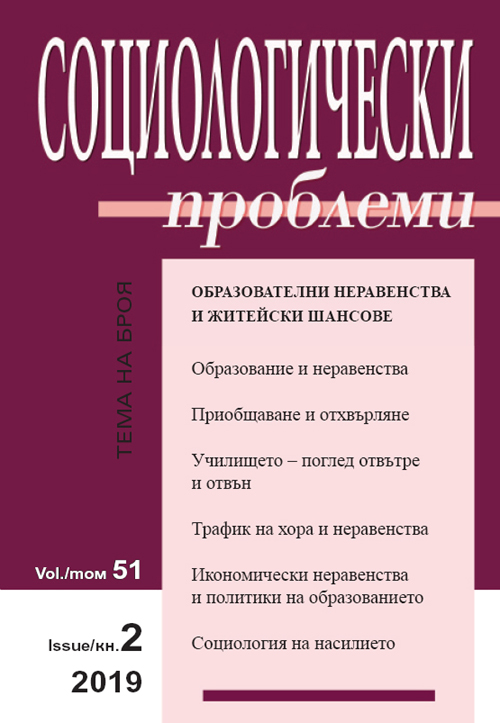Образование за всички или за елита? Стратегии за постигане на по-голямо равенство на шансовете в германската система на училищното образование
Education for All or For the Elite? Strategies for Achieving Greater Equality of Chances in the German School System
Author(s): Michael HartmannSubject(s): Social Sciences, Education, School education
Published by: Институт по философия и социология при БАН
Keywords: social inequality; unequal educational chances; social selectiveness in the educational system; educational poverty; expenditure on education
Summary/Abstract: Today, a public debate is once again being conducted in Germany regarding the deficits of the German education system and the reforms that need to be made. Moreover, there are obvious interesting similarities to the discussion held during the 1960s. For instance, in both cases a mismatched has been observed between research results and practical policy. Recent social surveys and international comparative analyses, such as PISA, have clearly proven that, both in the past and now, it cannot be said there is equality of chances in the German education system. The system of school education is particularly marked by great selectiveness: the dependence of scholastic success on social origin in Germany is great as in no other country. Despite this, no reforms are being undertaken. The latest educational policy measures rather lead to increased selectiveness based on social origin. For instance, the Gymnasium (high school), as a basic pillar of selection remains intact, and new obstacles are being created: with the reduction of the length of high school education from 13 to 12 years, the possibility of transit from one form of school education to another is becoming even more difficult. In the German school system, social inequalities are not being abolished; to the contrary: they are becoming more stable and deeper. A child’s social origin and stratum background have a considerable impact on his/her educational performance and chances for participation in social life. Children from strata and families that are “distanced from education” and of emigrant origin have considerably smaller educational chances compared with children of German origin; they also have weaker professional opportunities and general life chances. With regard to finding a solution to this educational poverty and enhancing equality of chances in the school system, the political conclusions that must be drawn are, so to say, self-evident in view of the undisputed scientific proofs. A significant prerequisite for this is that the state must considerably increase expenditure on education. Together with this, the school system must be reformed in terms of structure: the encouragement of children from an early age must be decisively improved in order to enable longer joint learning of children of different social situations and in order to put an end to early selection in the school system. Abolishing the three-stage school education system must be in the focus of attention. Only thus can we prevent the deepening of the rift in education and the growing split within a society based on unequal educational chances.
Journal: Социологически проблеми
- Issue Year: 51/2019
- Issue No: 2
- Page Range: 439-465
- Page Count: 27
- Language: Bulgarian
- Content File-PDF

